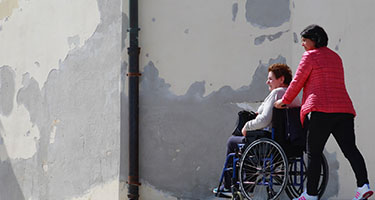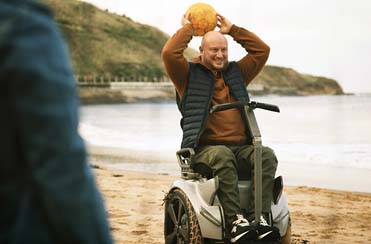For most of our lives, we’ve heard from one source or another about the importance of maintaining a balanced nutritional diet to lead a healthy life. Arguably, nutrition for those living with a spinal cord injury is even more of a key concern.

Image credit: Vitalii
The importance of nutrition for spinal cord injuries
Many medical complications occur post–spinal cord injury over which people have no control, including:
- Muscle loss due to lack of movement
- Paralysis of limbs or bodily functions
- Weaker muscles or bones
These conditions can be further compounded and create new and potentially more dangerous conditions if proper nutrition for the spinal cord injury is not practised. This happens because there is typically a decrease in metabolic activity as one goes through the recovery process of a spinal cord injury.
The body needs less energy to function and, therefore, fewer calories. If one’s diet contains an abundance of food of low nutritional value and there is less activity to burn those calories, the chances of experiencing weight gain, cholesterol problems, and diabetes increase significantly.
The benefits of spinal cord injury nutrition
Those living with spinal cord injuries often experience issues with their bladder and/or digestive tract. A slower digestive tract needs to be taken into account when planning one’s diet to ensure foods such as fresh fruits, vegetables and whole grains are included to provide the fibre the body needs to aid in that digestion by keeping the intestines active.
Pressure sores are another common condition for those with SCI that can be helped by following spinal cord injury nutrition guidelines. Both diabetes and being overweight affect blood flow in a body that is already slowed down. By maintaining a diet high in proteins to maximise blood flow and preserve lean body mass, pressure sores and the skin ulcers created by them can often be avoided.
Of course, whether you have a spinal cord injury or not, the old adage about a balanced diet still rings true. That means avoiding foods that are too rich in calories with no nutritional value and including a balance of foods with protein, fibre, and complex carbohydrates. Ideally, following nutritional advice for spinal cord injuries should be complemented with wheelchair sports, which along with aiding weight loss have additional benefits after a spinal cord injury. This could include simple wheelchair exercises or partaking in adaptive water sports, such as swimming and surfing.
Consult your medical team to create a diet that meets your nutritional needs and taste and an exercise regime that helps you safely achieve your goals.
For further personalised spinal cord injury guidance, our dedicated spinal cord injury support team can answer your spinal cord injury questions when you join our free Navigator service.









